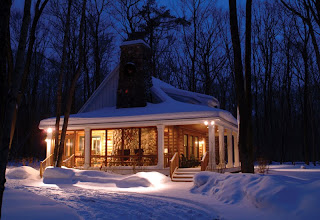NEW YORK (CNNMoney.com) -- Foreclosures accounted for a third of all sales -- and sold at a nearly 30% discount -- during the first three months of 2010.
According to a new report from RealtyTrac, the marketer of foreclosed properties, 31% of all sales were foreclosures. And homebuyers purchasing those properties paid a whopping 27% less, on average, compared to sales of non-distressed homes.
These foreclosure sales include properties sold in short sales or after a bank repossession, known as REOs in industry terms. It does not include transfers from borrowers to banks, as in a sheriff's auction.
REOs, those homes already taken back from borrowers, commanded lower prices than short sales and other pre-foreclosures. The average REO sold for 34% less than conventional sales while pre-foreclosures averaged only 15% less.
Part of the reason for the bigger price cut for REOs is that many of them come to the market in poor condition, their previous owners either unable to or unwilling to maintain them.
Beaten-down condos: 'Deals of lifetime'
Foreclosures have become a dominant feature of many real estate markets, finding willing buyers among young bargain hunters and savvy housing market veterans.
During 2009, more than 1.2 million property sales involved foreclosures. That grew 25% compared with the year before, and 2,500% from 2005.
"That number boggled my mind," said Rick Sharga, a spokesman for RealtyTrac. "A 2,500% increase over a four-year period surprised even us."
Foreclosure sales were highest, expectedly in the bubble states. In Nevada, for example, they represented nearly 64% of transactions. And that's actually an improvement over the 75% of all sales during the first three months of 2009.
Surprisingly, both Massachusetts and Rhode Island had higher incidences of foreclosure sales than did the bubble state of Florida, at 42% vs. 39%.
"Massachusetts and Rhode Island were two of the only Northeastern states that racked up unsustainable price increases during the boom," pointed out Sharga.
Managing foreclosure inventories
Lenders have been trying to manage their inventories of foreclosed homes to prevent them from flooding the market and dragging down prices.
"It will be interesting to watch how they will manage the inventory levels of distressed properties on the market in order to prevent more dramatic price deterioration," said Saccacio.
Sharga said the impact of foreclosure sales on the rest of the homes for sale can be very strong. He cited Nevada, where the price difference between foreclosed properties and conventional sales is very narrow, only 17%.
"That state had such a high incidence of foreclosure sales it managed to depreciate the entire inventory there," he said.



















































